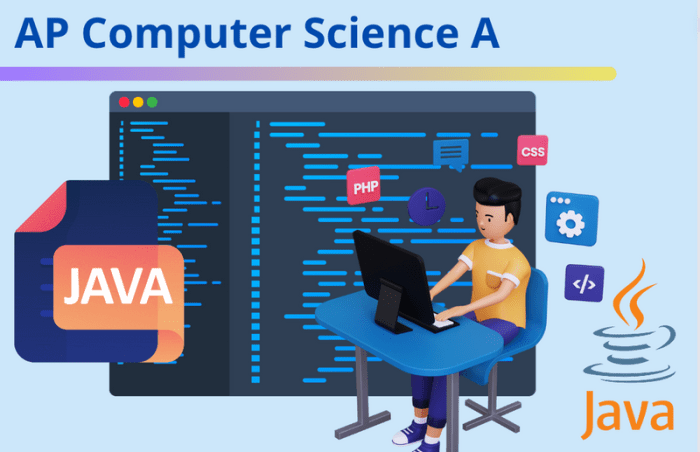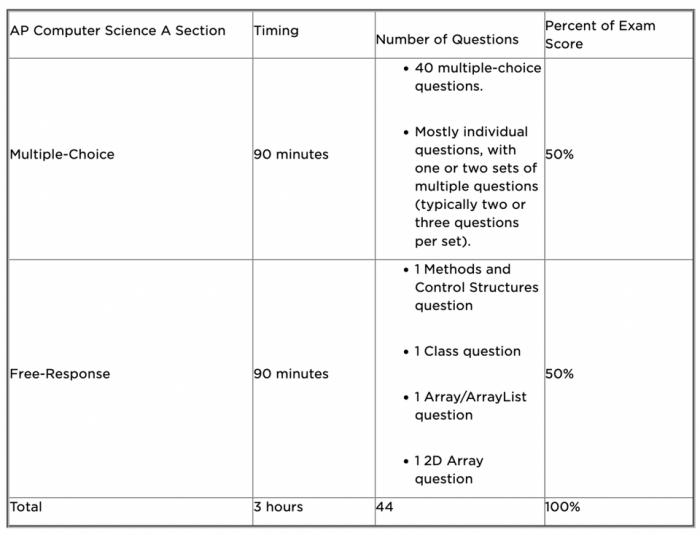AP Computer Science Principles written response stands as a cornerstone of the AP Computer Science Principles curriculum, demanding a deep understanding of computing concepts and effective communication skills. This comprehensive guide delves into the intricacies of AP Computer Science Principles written responses, empowering students with the knowledge and strategies to excel in this challenging assessment.
As we embark on this journey, we will explore the structure, content, and evaluation criteria of AP Computer Science Principles written responses, unravel effective strategies for planning, writing, and revising, and analyze exemplary responses to uncover the secrets of success.
1. Definition and Overview: Ap Computer Science Principles Written Response

The AP Computer Science Principles written response is a crucial component of the AP Computer Science Principles curriculum. It assesses students’ understanding of the foundational concepts of computer science, their ability to apply computational thinking skills, and their proficiency in written communication within the context of computer science.
Structure and Format
The AP Computer Science Principles written response typically consists of two sections: a short answer section and an essay section.
- Short Answer Section:This section includes multiple short answer questions that require students to provide concise, focused responses demonstrating their knowledge of specific concepts.
- Essay Section:This section includes one or two essay questions that require students to develop and support extended responses, applying their understanding of computer science principles to real-world scenarios or hypothetical situations.
Content and Evaluation
The written response covers a range of content areas within computer science, including:
- Computational Thinking:Problem-solving, abstraction, decomposition, pattern recognition, and algorithmic thinking.
- Data and Information:Data representation, data analysis, and information management.
- Algorithms:Design, implementation, and analysis of algorithms.
- Programming:Basic programming concepts and principles.
- Internet and Society:Impact of technology on society, ethics, and privacy.
Responses are evaluated based on their:
- Accuracy and depth of content knowledge.
- Clarity and organization of written communication.
- Application of computational thinking skills.
- Use of specific examples and evidence.
Strategies for Success, Ap computer science principles written response
To succeed on the AP Computer Science Principles written response, students should:
- Prepare Thoroughly:Study the course material, practice answering short answer and essay questions, and review sample responses.
- Plan and Structure:Develop a clear Artikel for each essay, ensuring a logical flow of ideas and evidence.
- Write Clearly and Concisely:Use precise language, avoid jargon, and proofread responses carefully.
- Demonstrate Computational Thinking:Apply computational thinking skills to analyze problems, design solutions, and evaluate results.
- Manage Time Effectively:Allocate time wisely between the short answer and essay sections.
Questions and Answers
What is the purpose of an AP Computer Science Principles written response?
AP Computer Science Principles written responses assess students’ ability to apply computing concepts, analyze problems, and communicate their solutions effectively in writing.
What are the key content areas covered in AP Computer Science Principles written responses?
AP Computer Science Principles written responses cover a wide range of topics, including data representation, algorithms, programming fundamentals, and societal implications of computing.
How are AP Computer Science Principles written responses evaluated?
AP Computer Science Principles written responses are evaluated based on their accuracy, clarity, organization, and depth of analysis.


